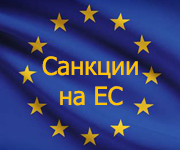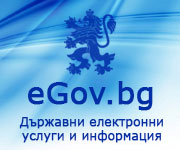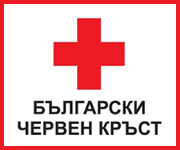Назад
“Based on Chambers’ experience, I believe that the delivery of these recommendations would provide a valuable boost to the business community and consequently contribute to Europe’s economic recovery,” said Alessandro Barberis, President of EUROCHAMBRES.
1. BUSINESS CREATION AND GROWTH
Establish a European Central Guarantee Fund. This fund should provide EU-level guarantees both to cover the default risk and to reduce the capital requirements of financial institutions. This mechanism should be managed by the European Investment Fund and make guarantees available to all member states, complementing existing national guarantee systems and plugging the gap in member states where such systems are not yet developed. Non allocated structural funds could provide an additional financial envelop.
2. SKILLS
Ensure that the proposed new EU programme for Education, Training, Youth and Sport, “Erasmus for All”, has a clearly dedicated budget for Vocational Educational and Training measures, which is not currently the case. Dual training principle has proven to be effective in decreasing the youth unemployment.
3. INTERNATIONALISATION
Create an “EU Internationalisation Platform for SMEs”, with the objective of bringing together all private sector stakeholders and develop one common strategy at EU level. Reintroducing the “mutual benefit principle” in the developing cooperation funds will encourage European business in approaching markets abroad.
4. INNOVATION
Include in Horizon 2020 a new SME instrument with a three stage approach (feasibility – R&D – commercialization). This instrument must be retained during inter-institutional negotiations and indeed reinforced, ensuring that considerably more than the anticipated 15% of the programme;s budget is allocated to supporting and stimulating innovation in a wide sense among SMEs.
5. ENERGY EFFIECIENCY
Targets and deadlines may make the headlines, but the cumulative impact of sensible, bottom-up solutions is critical to the EU achieving its energy efficiency goals. In particular, the effective provision of information and support to SMEs, a considerable yer still largely untapped source of energy efficiency improvements, can have a very positive impact. Chambers urge policy makers not to overlook this important aspect in finalizing discussions on the revision of the Energy Efficiency Directive and implementing strategies for its delivery.
As a full member of EUROCHAMBRES, the Bulgarian Chamber of Commerce and Industry supports all recommendations listed above and shall render its commentary at a special briefing tomorrow at 11:00 a.m.
Назад
EUROCHAMBRES: Five recommendations for growth to the European Council
In view of the European Council of 1-2 March, EUROCHAMBRES presented specific recommendations to Heads of State and Government, relating to five policy areas of great significance to the business community.“Based on Chambers’ experience, I believe that the delivery of these recommendations would provide a valuable boost to the business community and consequently contribute to Europe’s economic recovery,” said Alessandro Barberis, President of EUROCHAMBRES.
1. BUSINESS CREATION AND GROWTH
Establish a European Central Guarantee Fund. This fund should provide EU-level guarantees both to cover the default risk and to reduce the capital requirements of financial institutions. This mechanism should be managed by the European Investment Fund and make guarantees available to all member states, complementing existing national guarantee systems and plugging the gap in member states where such systems are not yet developed. Non allocated structural funds could provide an additional financial envelop.
2. SKILLS
Ensure that the proposed new EU programme for Education, Training, Youth and Sport, “Erasmus for All”, has a clearly dedicated budget for Vocational Educational and Training measures, which is not currently the case. Dual training principle has proven to be effective in decreasing the youth unemployment.
3. INTERNATIONALISATION
Create an “EU Internationalisation Platform for SMEs”, with the objective of bringing together all private sector stakeholders and develop one common strategy at EU level. Reintroducing the “mutual benefit principle” in the developing cooperation funds will encourage European business in approaching markets abroad.
4. INNOVATION
Include in Horizon 2020 a new SME instrument with a three stage approach (feasibility – R&D – commercialization). This instrument must be retained during inter-institutional negotiations and indeed reinforced, ensuring that considerably more than the anticipated 15% of the programme;s budget is allocated to supporting and stimulating innovation in a wide sense among SMEs.
5. ENERGY EFFIECIENCY
Targets and deadlines may make the headlines, but the cumulative impact of sensible, bottom-up solutions is critical to the EU achieving its energy efficiency goals. In particular, the effective provision of information and support to SMEs, a considerable yer still largely untapped source of energy efficiency improvements, can have a very positive impact. Chambers urge policy makers not to overlook this important aspect in finalizing discussions on the revision of the Energy Efficiency Directive and implementing strategies for its delivery.
As a full member of EUROCHAMBRES, the Bulgarian Chamber of Commerce and Industry supports all recommendations listed above and shall render its commentary at a special briefing tomorrow at 11:00 a.m.
29.02.2012
Още новини:
-
24-02-2012

 1 USD =
1 USD =  1 GBP =
1 GBP =  1 CHF =
1 CHF =  ISO 9001:2015
ISO 9001:2015






























